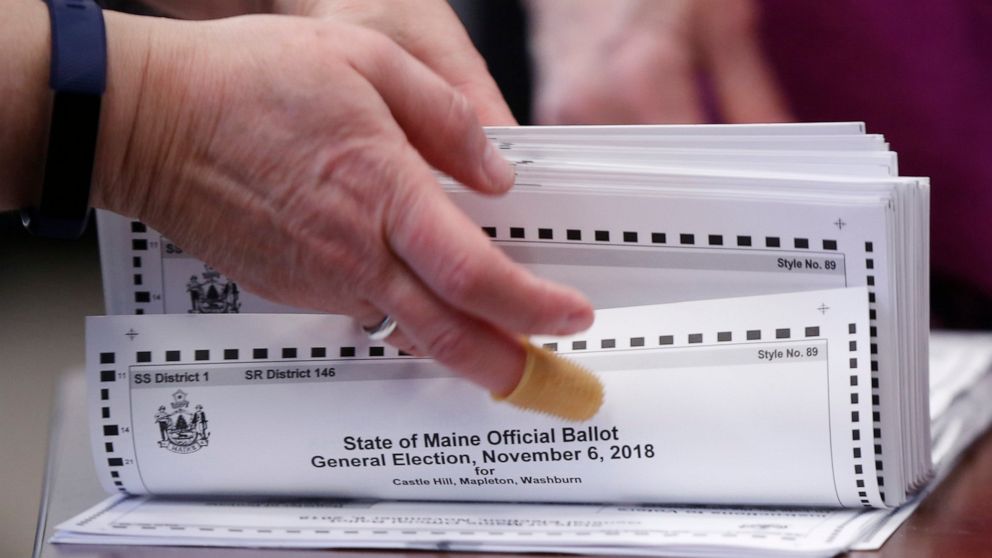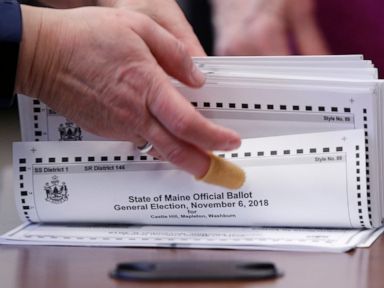
Maine moved ahead Friday on plans to become the first state to allow voters to rank candidates in a general presidential election.
Gov. Janet Mills, a Democrat, said she’ll allow a bill to become law in January without her signature. The legislation requires ranked choice voting in presidential elections and primaries.
Ranked voting won’t be used in a planned presidential primary in March 2020, Mills’ office said. The bill won’t go into effect until 90 days after the Legislature is set to adjourn in April.
But future presidential primaries would use ranked choice voting, according to the governor’s office.
Maine voters in 2016 approved ranked voting, but the system was limited to federal races and primaries.
Under the system, voters rank three or more candidates on a ballot in order of preference. If no candidate gets more than 50%, the last-place candidate is eliminated.
The second-choice votes of everyone who ranked that candidate first are allocated until someone receives over 50%.
Supporters of the system who have been trying to spread it to more states cheered the expansion of ranked choice voting Friday.
“Now Mainers have the option to vote freely for an independent or third-party presidential candidate that best speaks to them and still indicate a backup choice between the major-party candidates,” FairVote president and CEO Rob Richie said.
David Farmer, a spokesperson for The Committee for Ranked Choice Voting, said it’s “too bad” that Mills didn’t sign the bill in to law so voters could rank candidates in the crowded March primary.
The governor said Friday that ranking choice voting can empower voters and encourage civility.
But she also expressed financial and logistical concerns about the legislation, which she said lacked funding and raised questions about how it could affect the selection of convention delegates.
The bill says using ranked choice voting in presidential races would prove a “minor cost increase.” Democratic Secretary of State Matt Dunlap has estimated a ranked voting primary could cost $100,000.
“By not signing this bill now, I am giving the Legislature an opportunity to appropriate funds and to take any other appropriate action in the second regular session to fully implement ranked-choice voting in all aspects of presidential elections as the Legislature sees fit,” Mills said.
Mills said that even without the bill, parties could still use “ranked-choice voting or some similar process” when selecting delegates.
Maine is set to switch from presidential caucuses to a presidential primary next March. As the 2020 presidential primary season nears, an increasingly small handful of states still have caucuses.
Opponents who want to prevent that primary have until Sept. 18 to submit enough signatures. Then, voters in June would have a chance to weigh in on the law approving the change.





